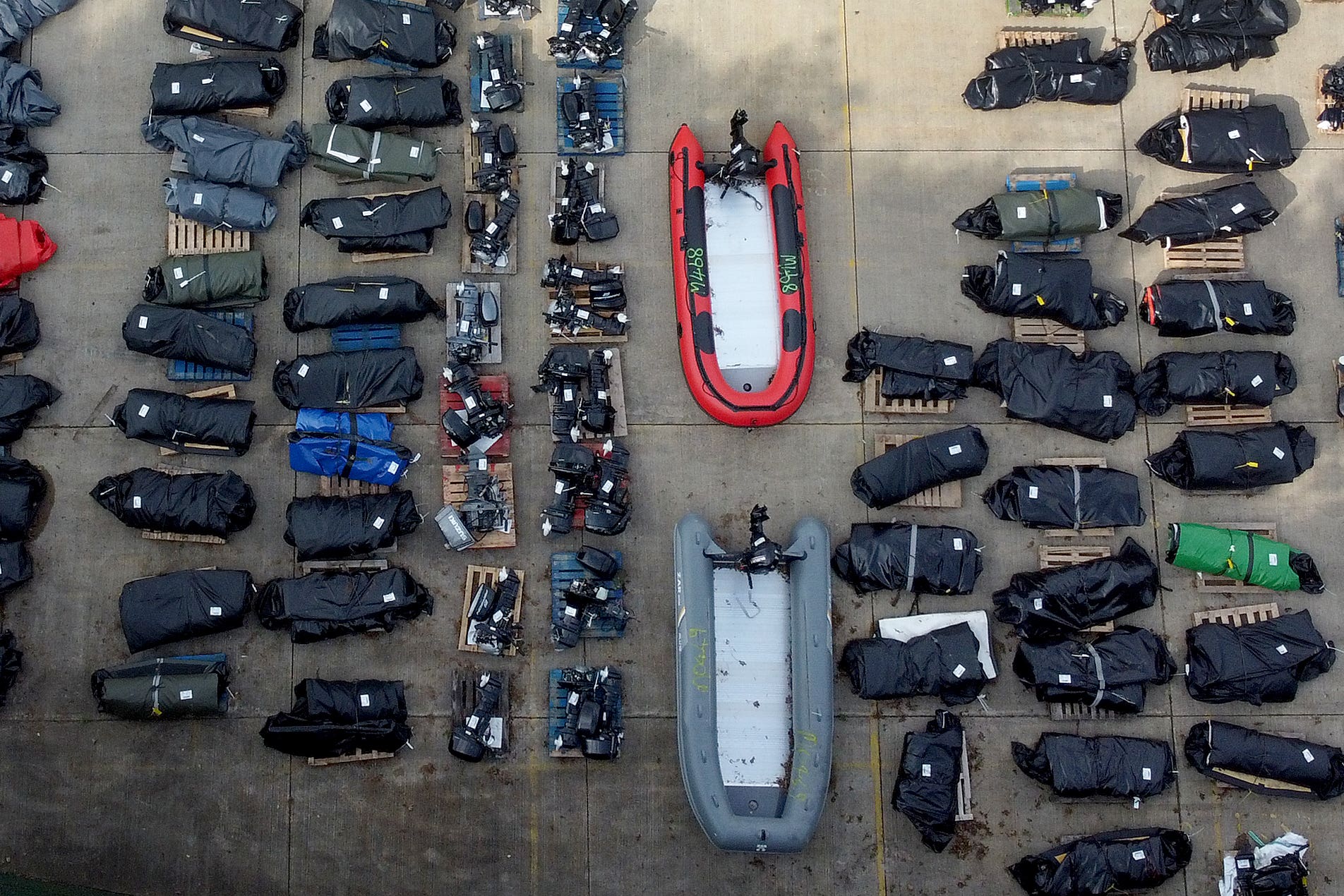No Channel crossings over Christmas for first time in five years
Home Office figures show there have now been 10 consecutive days without any arrivals recorded.

Your support helps us to tell the story
From reproductive rights to climate change to Big Tech, The Independent is on the ground when the story is developing. Whether it's investigating the financials of Elon Musk's pro-Trump PAC or producing our latest documentary, 'The A Word', which shines a light on the American women fighting for reproductive rights, we know how important it is to parse out the facts from the messaging.
At such a critical moment in US history, we need reporters on the ground. Your donation allows us to keep sending journalists to speak to both sides of the story.
The Independent is trusted by Americans across the entire political spectrum. And unlike many other quality news outlets, we choose not to lock Americans out of our reporting and analysis with paywalls. We believe quality journalism should be available to everyone, paid for by those who can afford it.
Your support makes all the difference.Migrants did not cross the Channel over the Christmas period for the first time since current records began.
According to Home Office figures, no Channel crossings took place on Christmas Eve, Christmas Day or Boxing Day this year. This is the first time this has happened since 2018.
It means there have now been 10 consecutive days without any arrivals recorded, with poor weather conditions potentially contributing to the lack of activity at sea.
The latest journey, on December 16, saw just one boat carrying 55 people make the journey to the UK from France.
Last year, 90 arrivals were recorded on Christmas Day, with none on Christmas Eve or Boxing Day.
It was a similar pattern in 2021, with 67 arrivals on December 25 but none on December 24 or 26.
Both 2020 and 2019 saw no action on Christmas Eve or Christmas Day, but there were crossings on Boxing Day, with seven and 49 arrivals respectively.
In 2018 there were no arrivals on Christmas Eve, 45 on Christmas Day and three on Boxing Day.
The number of crossings this year is 36% down compared to this time last year, with the provisional total for 2023 still lower than 30,000, PA news agency analysis shows.
In 2022, a record 45,774 people arrived in the UK after making the journey, but this year’s total so far stands at 29,437.
Last week Rishi Sunak said there was no “firm date” for meeting his pledge to “stop the boats” when facing questions from MPs.
The promise was one of the five priorities the Prime Minister set out at the start of 2023 when he said he would pass a new law making sure those who arrived by small boat would be “detained and swiftly removed”.
Appearing before the Commons Liaison Committee, he was also unable to say when he would clear the backlog of asylum claims, which stood at 109,442 cases at the end of November.
Mr Sunak pledged to clear the backlog of so-called “legacy” cases, those made before June 28 2022, by the end of 2023.
The “legacy” backlog has fallen by nearly three-quarters since June 2023, reaching 18,366 by the end of November.
Asked whether he would meet his pledge, Mr Sunak said: “We’re not at the end of the year yet, so the final statistics haven’t been published, but we are making very good progress.”
The rest of the backlog – those applications made on or after June 28 2022 – continues to rise, reaching 91,076 at the end of November.
Asked when the overall backlog would be cleared, the Prime Minister declined to give a date, saying: “We haven’t set a target for that publicly but obviously the priority was clearing the initial legacy asylum backlog.”